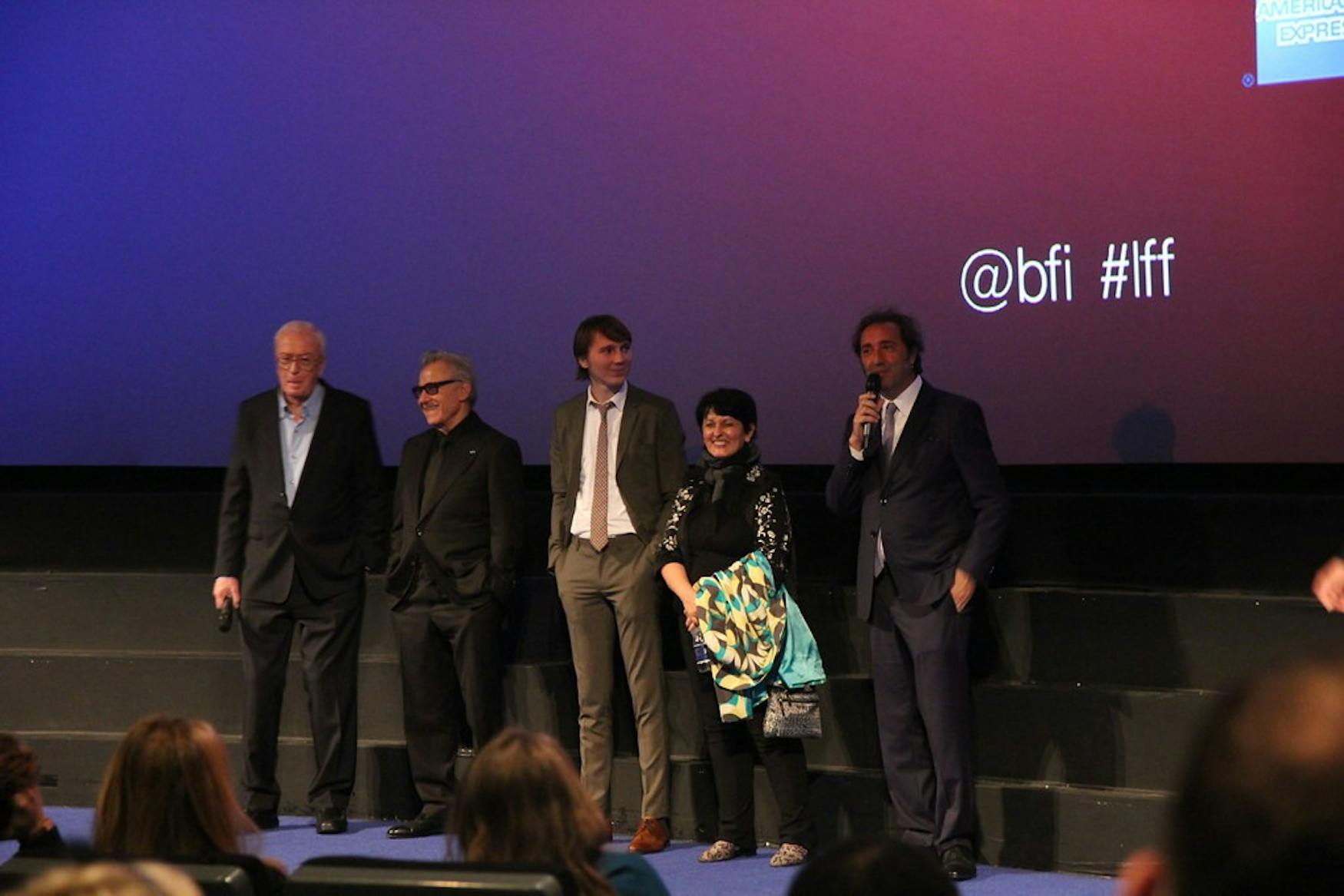“Youth”: the purpose of living and the meaning of death
For those feeling trapped in quarantine, “Youth” is an invitation to a lush hotel in the Swiss mountains where retired composer Fred Ballinger (Michael Caine) spends his days wandering through verdant fields, getting massages and watching nightly performances from artists in every medium from opera to giant soap bubbles. Yet this idyllic vacation is marred: he is apathetic, his daughter Lena (Rachel Weisz) says, and he refuses to conduct or compose new music.
His best friend of 60 years is Mick Boyle (Harvey Keitel), a director struggling to write his latest film — what he calls his “testament” — along with a team of young writers. In a scene of kaleidoscopic cinematography, the writers lie on their backs, slumber party-style, and brainstorm the dying words of the film’s protagonist. Here the film offers a glimpse at its central question as aging Mick asks a handful of 30-somethings to pitch him deathbed scenes: what, in the end, is life’s meaning? Inquiring minds, young and old, would like to know.
In “Youth,” Italian director Paolo Sorrentino’s second English-language film, the answers are straightforward: beauty and emotion. Every aspect of the film is aesthetically-minded, including cinematography that is precise, dreamlike and always stunning, costume design that leaves no detail unremarkable and a soundtrack that is as varied as it is affecting. All this creates a cinematic charcuterie board of the sensual joys of living.
The visual design may verge on lavish, but ultimately each element is essential to tell the story. Mick is a rare breed. He’s an artist who’s made it, at least financially, and his wardrobe shows it: stylish silver-frame glasses and patterned tops that are at once bold and tasteful. Fred is a listless quasi-recluse in his dull grey or brown suits — he does not want to be noticed. Several symmetrically-framed shots are mildly whimsical and imply the surreal quality of this Swiss idyll where vacationers grapple with the meaning of life. Most of all, form follows content: if Sorrentino wishes us to believe that beauty makes life worth living, he had better sell it.
All the beauty in the world would mean nothing if humans were not endowed with the ability to feel. “Emotions,” Mick says, “are all we’ve got.” A Scandinavian mountain climber, flirting with Lena, is perhaps more eloquent. “It is an amazing feeling climbing, you know? A real sense of freedom,” he says. Lena is unconvinced. “All I feel is fear,” she says. He responds, “That is an amazing feeling too, you know?”
Besides beauty, the film invests unflinching attention to the body in all its mundane grotesquery. We see the award-winning form of Miss Universe lounging in a sauna, and we see an obese, shirtless man, whose back is covered with a tattooed portrait of Karl Marx, playing a lonesome game of hacky sack. Fred and Mick discuss whether they’ve managed to urinate that day, and a teenaged masseuse with braces throws herself into an energetic Just Dance routine. The body, the camera seems to say, is not to be judged — it is nothing more or less than the chariot of the soul through life.
Sorrentino’s ode to the glory of life is successful, in part, because it narrowly avoids the saccharine. The characters are fundamentally unhappy — they are frustrated, disillusioned, heartbroken and afraid — and this provides an undercurrent of melancholy to the visual feast. Amid the spectacle, everyone carries their secret wounds garnered by the simple act of living. And though the film presents beauty and emotion as balms, not everyone is saved. The wounds cannot always be bound. But Sorrentino asks us to wager that they, more often than not, can. We heal, we get hurt. The cycle continues.
Sorrentino’s film garnered remarkably little recognition when it was released in 2015. In a season when time feels static and the days of quarantine run together, the film offers a reassuring sense of perspective. “Youth” is a film about growing old and dying, but it is more so about living. It weighs the countless blows life deals, both minor and mortal, against fleeting moments of joy and wonder and asks us to accept this unbalanced deal. In a time when life’s blows seem relentless, this film makes a much-needed case for hope. This year has often felt like a long, surreal period of waiting for change and receiving stagnation instead. “Youth” is a reminder that there will be a time when this all feels very far away. And for many of us, years of beauty and triumph lie ahead.



Please note All comments are eligible for publication in The Justice.